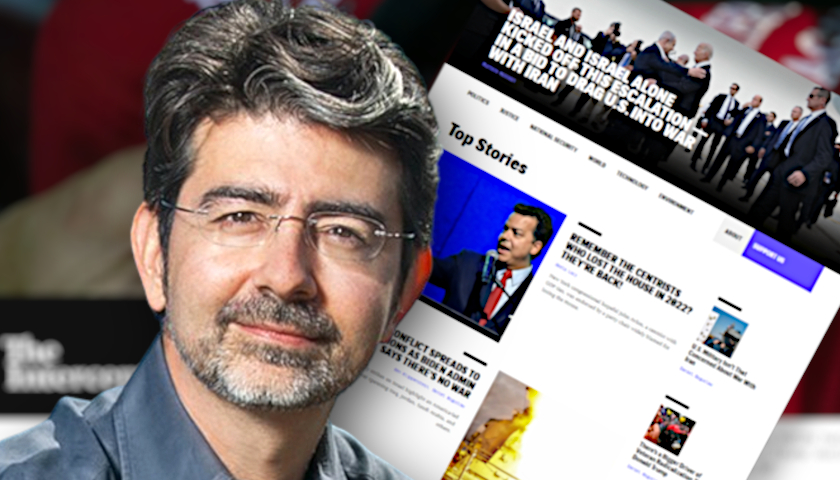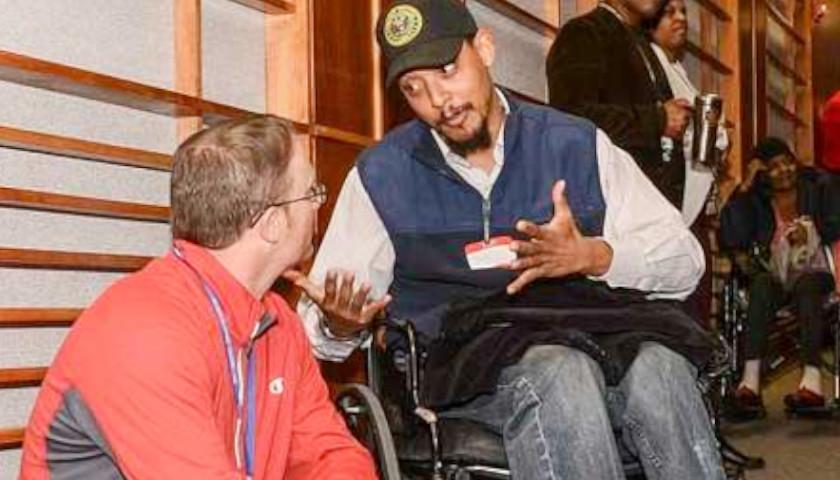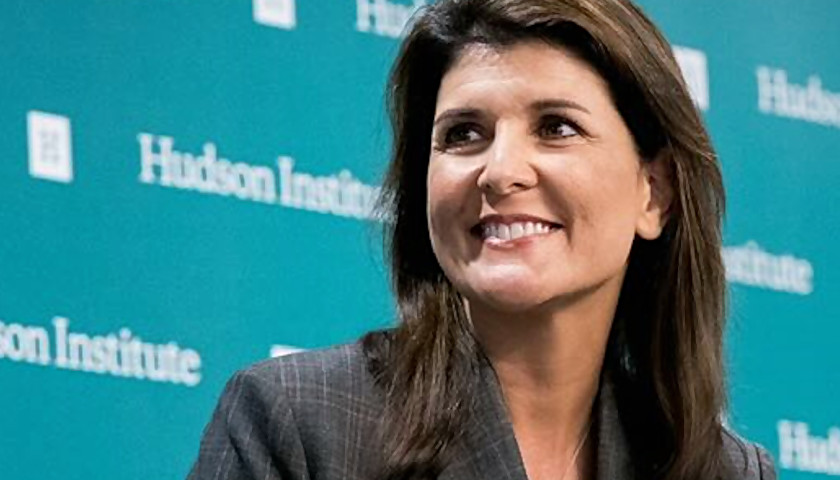by Laurel Duggan
State laws have made it effectively illegal for therapists to help children with gender identity issues come to terms with their natural bodies and biological sex in much of the country by labeling the practice an illegal form of “conversion therapy.”
While conversion therapy is broadly understood to refer to clinical attempts to get patients to stop feeling same-sex attractions, and has historically included practices like shock therapy, the term has expanded since the mid-2010s to include efforts by health care professionals to help gender-confused patients accept their birth sex rather than putting them on the transgender medicalization track. As states pushed new conversion therapy bans under this new definition, therapists are facing intimidation, legal battles and threat of licensure loss for offering a critical or exploratory approach to children who struggle with their gender identity.
“If someone tells you what their gender identity is you must affirm them; you must accept it at face value,” Joseph Burgo, a psychotherapist and vice director of Genspect, told the Daily Caller News Foundation. “It has a chilling effect on the whole profession. I know therapists who avoid gender altogether because they’re afraid of activists coming after them.”
 Many transgender activist groups advocate for conversion therapy bans; The Trevor Project, an LGBT activist group, called conversion therapy a set of “dangerous and discredited practices aimed at changing one’s sexual orientation or gender identity or expression” and blamed the practice for “depression, anxiety, substance abuse, and suicidality.” GLAAD and the Human Rights Campaign offer similar definitions, which include gender identity in addition to sexual orientation, and GLAAD encourages media members to refer to crackdowns on the practice as “laws protecting LGBTQ+ youth from conversion therapy” rather than “laws banning conversion therapy for minors.”
Many transgender activist groups advocate for conversion therapy bans; The Trevor Project, an LGBT activist group, called conversion therapy a set of “dangerous and discredited practices aimed at changing one’s sexual orientation or gender identity or expression” and blamed the practice for “depression, anxiety, substance abuse, and suicidality.” GLAAD and the Human Rights Campaign offer similar definitions, which include gender identity in addition to sexual orientation, and GLAAD encourages media members to refer to crackdowns on the practice as “laws protecting LGBTQ+ youth from conversion therapy” rather than “laws banning conversion therapy for minors.”
“We do the work through legislative advocacy, litigation, public education, and partnerships with mental health associations, youth organizations, LGBTQ groups, student clubs, faith communities, and educational institutions,” the Trevor Project boasts on its website. “We also work with lawmakers in generating policy, providing survivor testimony, and demonstrating public support for ending conversion therapy.”
Over 20 states already have “conversion therapy” bans that bar therapists from helping minor patients accept their biological sex, typically by banning efforts to change these patients’ “gender identity” or “gender expression,” and several other states have licensing restrictions and other regulations that limit the practice.
In 2019, Colorado banned clinical attempts to “change an individual’s sexual orientation or gender identity,” joining dozens of states that had done so over the previous decade.
‘Chills The Whole Counseling Process’
Brian Tingley, a Christian family counselor, is suing his home state of Washington for its law banning conversations in a counseling setting that encourage the “change [of] an individual’s sexual orientation or gender identity.” In practice, Tingley says this law limits his ability to help patients who are uncomfortable with their sex but still want to accept their natural bodies.
“I can violate this law by simply having any conversations with my clients about gender, sexual orientation, sexual behaviors, sexual attractions, that Washington State doesn’t agree with,” Tingley told the DCNF. “So that is blocking a client from achieving a goal that they have voluntarily set for themselves. It chills the whole counseling process. And that’s what robs clients of hope that they can work towards the goal that they want … it harms clients.”
Practitioners who aim to help patients better understand themselves and the root of their gender identity troubles, and not necessarily to dissuade them from transition, also face risk of penalties and licensure loss from these laws.
For instance, Burgo does not practice conversion therapy in any sense of the word, he told the DCNF; he doesn’t aim to talk patients out of pursuing gender transitions, but rather aims to help them better understand themselves and the reasons they’re fleeing their biological sex.
Stephanie Winn, a marriage and family therapist in Oregon who was investigated by her licensing board over an accusation of “conversion therapy,” has similarly said that she does not practice conversion therapy under any definition, but that state laws restricting the practice have a chilling effect on any kind of therapy that doesn’t automatically affirm a child’s transgender status.
Winn, who has worked with detransitioners, says her career was threatened when online transgender activists, none of whom were ever clients of hers, began threatening to report her to her licensing board for “conversion therapy” after discovering online posts in which she was critical of some aspects of gender medicine.
Winn has been critical of Oregon’s conversion therapy ban, arguing that it discourages “exploratory” therapy for patients with gender identity issues.
“I hear from therapists all the time that simply will not work with minors or will not work with trans-identified/ gender-
While the vast majority of children who experience gender dysphoria in adolescence outgrow it by the time they reach adulthood, bans on so-called “conversion therapy” put therapists in the position of affirming and reinforcing a child’s transgender identity for fear of legal repercussions. Activists prefer the “affirmation” approach, in which counselors automatically accept a patient’s gender identity and avoid challenging or questioning it.
“Forcing transgender and gender diverse youth through extensive assessments while their cis peers are affirmed in their identity without question conveys to [them] that they are not ‘normal,’” Dr. AJ Eckert, medical director of the Gender and Life-Affirming Medicine Program at the Anchor Health Initiative, told The Los Angeles Times last year.
‘Torture For Kids’
State-level conversion therapy bans usually restrict efforts by counselors to change a minor’s sexual orientation or gender identity, and violating counselors are typically subject to disciplinary action by their licensing board, with such laws in effect in Colorado, Rhode Island, Oregon and California. Under these laws, if a patient identifies as the gender opposite their birth sex, any effort to help them accept their birth sex — even if the patient is specifically seeking out help with this goal — would be penalized as a form of conversion therapy.
“A mental health care or social health professional may not practice conversion therapy if the recipient of the conversion therapy is under 18 years of age,” Oregon’s conversion therapy ban reads. “‘Conversion therapy’ means providing professional services for the purpose of attempting to change a person’s sexual orientation or gender identity, including attempting to change behaviors or expressions of self or to reduce sexual or romantic attractions or feelings toward individuals of the same gender.”
The ban also states that “counseling that assists a client who is seeking to undergo a gender transition or who is in the process of undergoing a gender transition” is not considered a form of conversion therapy.
Michigan is considering legislation that would ban clinical attempts to alter a person’s gender expression or sexuality at risk of losing one’s professional license. Democratic Michigan State Rep. Jason Hoskins said conversion therapy was torture earlier this month.
“At the end of the day, this is really torture for kids,” Hoskins told Michigan Advance. “You’re growing up, you’re figuring things out and I think children should have that opportunity to do that.”
Dr. Erica Anderson, a transgender psychologist who has helped hundreds of teenagers transition to the opposite sex, has argued that asking critical questions of young patients who believe they’re transgender is the key to understanding whether they should medically transition in order to reduce their risk of regret.
“I have a dictum: When in doubt, doubt,” Anderson told The Los Angeles Times. “Questioning is a good thing. How are you going to find out if you are lockstep with whatever conclusion you come to first?”
GLAAD, HRC and the Trevor Project did not respond to the Daily Caller News Foundation’s request for comment.
– – –
Laurel Duggan is a reporter at Daily Caller News Foundation.
Photo “Child Getting Evaluated With Her Parents” by Tima Miroshnichenko.





